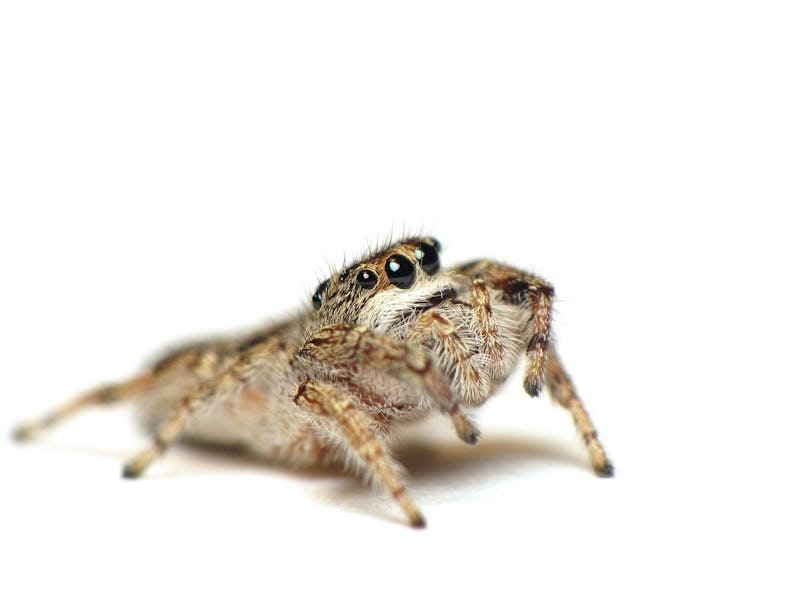Pesticides Can Change Spiders' Personalities, Even in Small Doses
McGill University researchers find what doesn't kill spiders still messes them up.

Rachel Carson put DDT on blast in Silent Spring, not because it was instantaneously killing animals by the bucketloads, but because the effects rippled through the ecosystem and knocked things out of kilter. Likewise, in a new study from McGill University biologists, sublethal amounts of insecticide phosmet don’t outright slay bronze jumping spiders, the scientists say — but they do alter the spiders’ personalities.
That spiders have personalities is less strange than in sounds. It’s a shorthand to describe how some are bold or more aggressive toward prey, meaning others in the same species are timid by comparison. But when spiders are dosed with phosmet, the authors report in Functional Ecology:
… our results suggest that insecticide-exposed individuals showed a strong departure from their personality tendencies. In other words, an active spider becoming ‘under the influence’ of insecticides may no longer behave as active as it would otherwise. These effects were expressed differently among sexes as insecticide exposure was more likely to cause changes in female hunting strategies while male exploration was altered irrespectively of prey capture.
It’s a somewhat unusual look at the way pesticides effect the environment — on an animal-by-animal basis, rather than whole species. When farmers, lawmakers and environmentalists wrestle with pesticides writ large — are they hurting the bees and monarchs? Will GMOs ultimately reduce or spur on chemical use? Where marijuana is legal, what do we do about pesiticides? The scientists hope that studies and questions like these will encourage a focus on tiny, individual effects. Before, you know, they possibly add up to something larger.